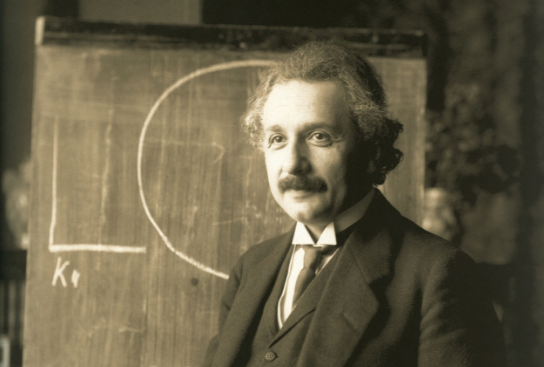Every director who casts Cate Blanchett—whether in period blockbusters like Elizabeth or Australian indies like Little Fishes—lets the camera dwell on her face for several silent beats in almost every scene she’s in. It’s almost a way of establishing her face as a character all its own, with its sharp features and consuming stare. Just above, Massive Attack’s video for their new song, “The Spoils,” takes this tendency deep into the uncanny valley.
Opening with a shot of Blanchett’s eyes, then several long, lingering looks at her face in close-up and deep chiaroscuro, the video quickly becomes more abstract and alien as it deconstructs her beauty into various kinds of artifice. It’s an art-house motif we’ve seen used effectively with other actresses known for their striking good looks—Scarlett Johansson in 2013’s Under the Skin, for example, or last year’s Ex Machina with Alicia Vikander.
These are films that defamiliarize their famous actresses and disrupt our comfortably shallow ideas about beauty and gender. “The Spoils”—scored by a band known for their cinematic sound (and occasionally Oscar-winning film soundtracks) and their political stances—functions beautifully as a mini-experimental film that takes us into profound and unsettling territory. This should come as no surprise; its director, John Hillcoat, also adapted Cormac McCarthy’s The Road into a film from which, for all its bleakness, we can hardly look away.
Massive Attack is also known for working with some of the most soulful of UK singers, including Shara Nelson, Tracey Thorn, Elizabeth Fraser, and Sinead O’Connor. In “The Spoils,” they collaborate with an American, another name we associate with the best of hazy, atmospheric 90s chill-out music, Mazzy Star’s Hope Sandoval. The results are hypnotic, as in all Sandoval’s work, and lushly, meticulously produced.
That said, taken separately, the song loses some of the arresting emotional power it has accompanying HIllcoat’s Twilight Zone images. You may be put in mind of the House intro with its x‑rays and organs shrouded in darkness, scored to Massive Attack’s “Teardrop.” But we can also compare “The Spoils” to “Teardrop”’s official video, above, another lingering meditation on human identity and personality.
Related Content:
Michel Gondry’s Finest Music Videos for Björk, Radiohead & More: The Last of the Music Video Gods
David Fincher’s Five Finest Music Videos: From Madonna to Aerosmith
Josh Jones is a writer and musician based in Durham, NC. Follow him at @jdmagness



